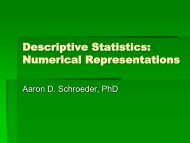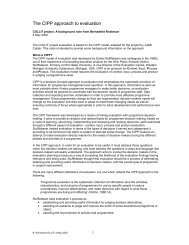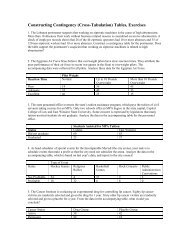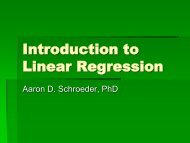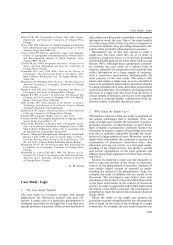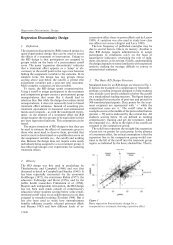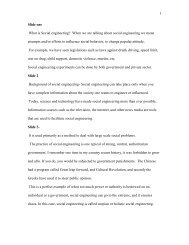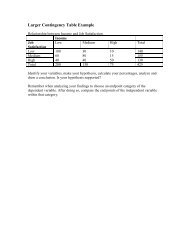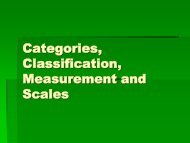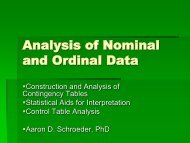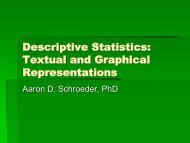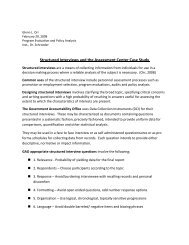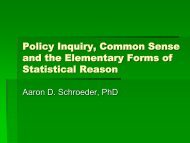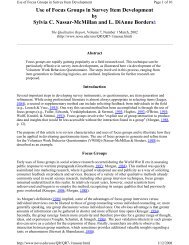The Problem
The Problem
The Problem
You also want an ePaper? Increase the reach of your titles
YUMPU automatically turns print PDFs into web optimized ePapers that Google loves.
y an “objective” inquirer mandates control of possible confounding factors, whether the<br />
methods are qualitative or quantitative” (Guba and Lincoln 1994, 108). If an objective<br />
reality were accepted in this case, then a straight-forward statistical analysis might be<br />
performed to determine which stakeholders have the highest aggregate rating across a<br />
few chosen metrics. Unfortunately (or fortunately), the political/social world within<br />
which the public administrator operates will generally preclude the establishment of any<br />
such specific metrics. Simply put, the question of methodological enquiry cannot simply<br />
be addressed within a discussion about the “methods” to be used. Instead “methods must<br />
be fitted to a predetermined methodology” -- a methodology predetermined by the<br />
paradigm of enquiry chosen (108).<br />
Accordingly, a case can be made that the ontological and epistemological viewpoints<br />
expressed in the past decade or two in public administration have been heading from one<br />
set (or paradigm) to another (or others). This shift brings with it certain responsibilities,<br />
not the least of which is the responsibility to design new methodologies that support the<br />
new set of ontological and epistemological assumptions. That is, while the modified<br />
experimental method using falsification of hypotheses and highly quantitative methods fit<br />
the positivist and post-positivist paradigms of enquiry, they do not necessarily fit the<br />
newer critical theoretic and/or interpretive/constructivist paradigms of enquiry (White,<br />
1994; Balfour and Mesaros, 1994; Dryzek, 1982). In the postpositivistic paradigm reality<br />
is assumed to exist, as in its predecessor, positivism, but we as human inquirers can only<br />
apprehend that reality imperfectly (unlike positivism) given our flawed human<br />
intellectual abilities (the ontology has been defined as “critical realism” (Cook &<br />
Campbell, 1979) because of the posture of proponents that claims about reality must be<br />
subjected to the widest possible critical examination to facilitate apprehending reality as<br />
closely as possible – but never perfectly). As stated by Guba and Lincoln, within this<br />
epistemological stance “objectivity remains a “regulatory ideal”; special interest is placed<br />
on “guardians” of objectivity such as critical traditions (Do the findings “fit” with preexisting<br />
knowledge?) and the critical community (such as editors, referees, and<br />
professional peers). Replicated findings are probably true (but always subject to<br />
falsification)” (110).<br />
9



